Which American state is most like Crimea?
Ukraine is swiftly losing its southernmost province. Would that be like Texas seceding? Or perhaps Hawaii?

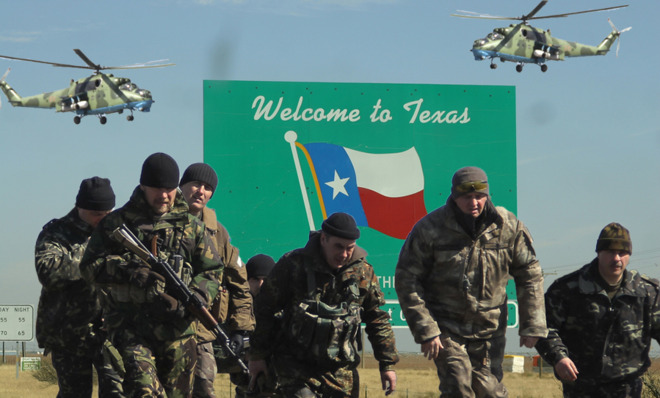
A free daily email with the biggest news stories of the day – and the best features from TheWeek.com
You are now subscribed
Your newsletter sign-up was successful
The Crimean Peninsula is attached to mainland Ukraine, but it is steadily becoming part of Russia. Again. "Crimea has always been an integral part of Russia in the hearts and minds of people," said Russian President Vladimir Putin, after signing a treaty with the pro-Moscow leaders of Crimea to formally annex the region. The U.S. and Europe don't recognize Crimea's independence from Ukraine, but if possession is nine-tenths of the law, Russia has the stronger claim, international statutes and niceties be damned.
This wouldn't be the first time Crimea has changed hands, though. The peninsula became part of Ukraine only in 1954, and before that it had a bewildering number of owners, including the ancient Greeks, the Scythian Empire, Rome, the Goths, the Huns, the Byzantine and Ottoman empires, Venice, Genoa, Imperial Russia, Soviet Russia, and, briefly, Nazi Germany. Still, for the last 60 years it has been part of Ukraine, and having it ripped away would be quite shocking.
There is no parallel to this situation in the U.S., which has only added to its territory for the last 60 years or more. But to better understand what Ukraine is grappling with, let's look at which U.S. state might be most like Crimea.
The Week
Escape your echo chamber. Get the facts behind the news, plus analysis from multiple perspectives.

Sign up for The Week's Free Newsletters
From our morning news briefing to a weekly Good News Newsletter, get the best of The Week delivered directly to your inbox.
From our morning news briefing to a weekly Good News Newsletter, get the best of The Week delivered directly to your inbox.
First, here's a brief look at Crimea and its costs and benefits to Russia and Ukraine. The peninsula is about 10,000 square miles in size, connected to Ukraine by the 3.1-mile-wide Isthmus of Perekop and separated from Russia by the Strait of Kerch, 2.8 miles across at its narrowest point.
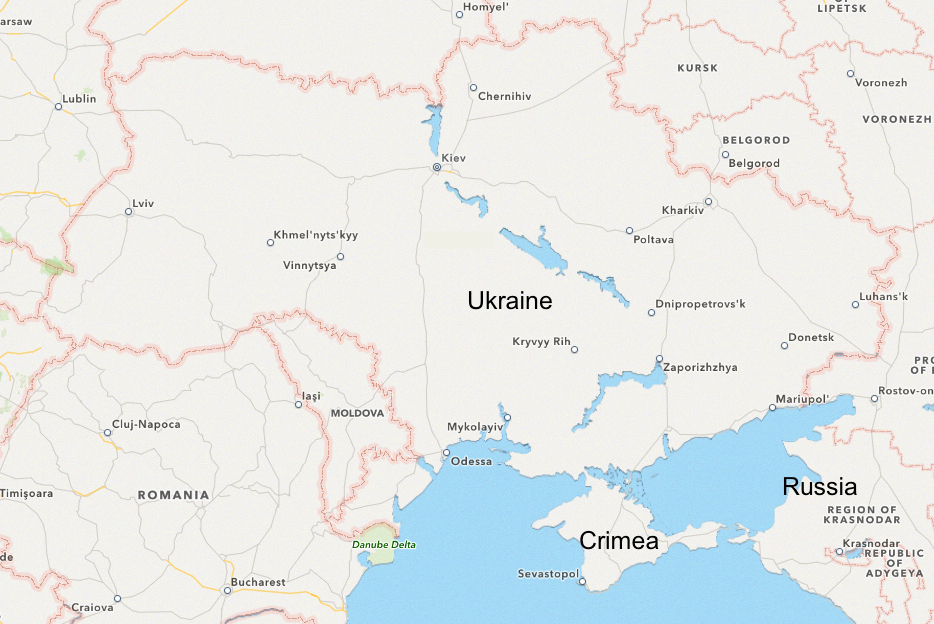
Here are some other salient details about Crimea that helped inform the selection of states:
- It has a scenic coastline along the Black Sea, with sandy beaches at the foot of verdant, steep mountains, plus scores of palaces and mansions from brighter days. During the Soviet era, it was heavily promoted as a health-spa resort destination for the proletariat and oligarchy alike.
- Tourism is still a main economic driver, along with agriculture — mostly grains, vegetables, and even wine grapes.
- Crimea is a strategically important naval base, and hosted Russia's Black Sea Fleet even before Moscow moved in to occupy the peninsula.
- Crimea is also home to Ukrainian oil and gas companies Chornomornaftogaz and Ukrtransgaz, both of whose assets Crimea seized on Monday, suggesting that Russia's Gazprom could take control of the offshore gas reserves Ukraine has been developing with foreign partners for several years.
- Despite its onshore and offshore gas reserves, Crimea is one of Ukraine's poorest regions, with an average monthly wage of about $270 a month.
- It is also heavily dependent on the mainland, with Ukraine providing 85 percent of its electricity, up to 90 percent of its drinking and irrigation water, and a good deal of its food. Moscow would need to pump $1 billion into Crimea each year to bring its per capital budget revenue to the level of Russia's poorest regions, according to Standard & Poors analyst Karen Vartapetov.
- Crimea is about 60 percent ethnic Russian, 25 percent ethnic Ukrainian, and 12 percent Crimean Tatar — a predominantly Muslim group that was forcibly removed from Crimea en masse by Soviet leader Josef Stalin in 1944. The Tatars started returning to Crimea after the fall of the Soviet Union in 1991. On March 16, 97 percent of the Crimean who voted approved a resolution to ditch Ukraine for Russia.
Which state matches that profile the closest for the United States? Here are a few possibilities, ranked on a (fairly arbitrary) 10-point scale based on factors like topography, historical alliances and sovereignty, separatist sentiment, economy, ethnic profile, and relationship to and dependence on the greater United States. Again, America has no direct parallel to Crimea, but some of these states have a few similarities:
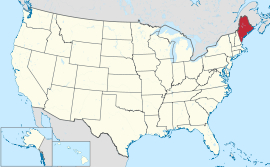
Perhaps the biggest similarity with Crimea is how easily Maine could be sliced off from the U.S. and transferred to Canada's New Brunswick or Quebec, where many Acadians would feel right at home.
A free daily email with the biggest news stories of the day – and the best features from TheWeek.com
Where the comparison breaks down
Maine has an extensive coastline, but its climate is very different than Crimea's, better suited for shipbuilding and commercial fishing than sunbathing. The separatist instinct in Maine seems to have run its course in the early 1800s.
Score: 5.1
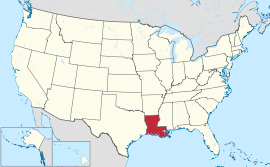
Crimea and Louisiana also have another thing in common: corruption. Louisiana consistently ranks among the most corrupt U.S. states, and Crimea's corruption problem would probably only get worse under Russian rule.
Where the comparison breaks down
Louisiana is strategically important because it contains the mouth of the Mississippi River, but that doesn't hold the same importance it did in the 1800s. The Cajuns don't have any particular affinity to France, or even the French-Canadian region of Acadia that their ancestors come from, and there are no real separatist stirrings in Louisiana.
Score: 6.5
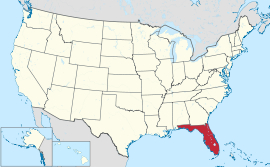
Florida and Crimea are both famous for their palm tree–lined beaches, and like Crimea, Florida would be fairly easy to slice off from its host country, geographically speaking.
Where the comparison breaks down
Florida's tourism industry is in much better shape than Crimea's, and it hasn't been part of another country since the U.S. bought it for $5 million from Spain in 1819. Also, Crimea votes consistently for pro-Russia candidates in national elections, while Florida is perhaps the most famous swing state in America.
Score: 7.3
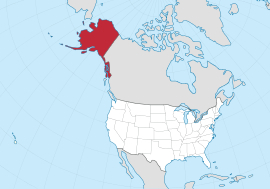
Since Alaska is closer to Russia than the United States, it would be extremely easy to transfer the state out of U.S. hands. Like Crimea, Alaska's economy depends heavily on subsidies from the central government, and both regions import food and other staples.
Where the comparison breaks down
Russia appears to have given up all claims to the territory when it sold it to the U.S. in 1867 — a purchase deemed so foolish in Washington that it was named Seward's Folly, for the man who negotiated the transaction, Secretary of State William Seward. Alaska has a very sparse population, lots of natural resources, and no naval bases. Tourism and agriculture are tiny parts of its economy, which is dominated by oil and gas.
Score: 8.2
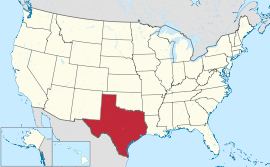
Texas and Crimea are also both situated at the bottom middle of their respective nations, and in similar proportion. Both also have large military bases, though Texas is better known for the Army's Fort Hood than the two naval air bases along the Texas Gulf Coast.
Where the comparison breaks down
Texans are proud to be from Texas, but unlike Crimea's Russian leanings, the large majority of them consider themselves Americans. Texas is also a net positive for the U.S. fiscal balance sheet, thanks in large part to its oil and gas reserves — which are much more developed than Crimea's. Crimea would also be relatively easy to sever from Ukraine, thanks to their tiny shared border; Texas has a large border touching four states. On the other hand, Texas has its own electricity grid, reducing its dependence on the rest of the U.S.
Score: 8.9
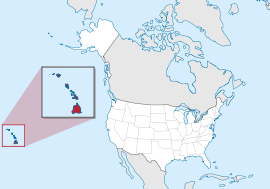
Crimea is largely ethnic Russian, with a sizable Tatar minority, while Ukraine is mostly ethnic Ukrainian. Hawaii is 39 percent ethnic Asian — mostly Filipino-American and Japanese-American — with a significant native Hawaiian minority. Hawaii also has a low-key separatist movement. Since the island state is about halfway between the U.S. and Asia, it would be the easiest of the 50 states to sever from Washington.
Where the comparison breaks down
There's no other country with a strong claim to Hawaii, though it has cultural and familial ties to several Asian nations. If anything, Hawaii would be a candidate for independence. Given Pearl Harbor's importance to the U.S. military — and the fact that the current resident of the White House was born in Hawaii — that seems like a tough sell in Washington.
Score: 9.4
Peter has worked as a news and culture writer and editor at The Week since the site's launch in 2008. He covers politics, world affairs, religion and cultural currents. His journalism career began as a copy editor at a financial newswire and has included editorial positions at The New York Times Magazine, Facts on File, and Oregon State University.
